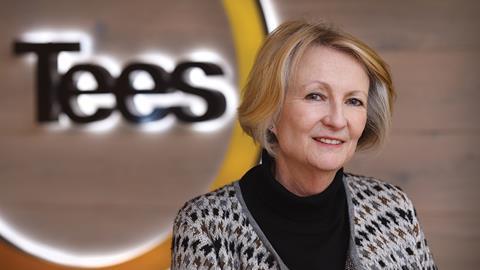Clinical negligence consultant, Cambridge
I started my career as a librarian but quickly realised that it wasn’t for me. So I changed tack and studied for a law degree. It being the 1970s, I was entering a male-dominated profession. Happily, the legal profession now employs many women; in fact, I have only been with Tees a matter of weeks and am thrilled to have already met a group of incredibly intelligent and savvy young women carving out important careers.
It is interesting how one exceptional mentor can dictate the course of your life. I was fortunate to work for a very good lawyer at my training firm in Luton and for two years worked exclusively with him on personal injury (PI). There was no rotation to other departments, he taught me well and I received a thorough understanding of this type of work.
My PI experience led to six years at the Royal College of Nursing running claims for injured nurses. This was truly life-changing. At this time there was no recourse for nurses who damaged their backs through heavy lifting. Many simply lost their jobs and were unable to work again.
I realised that to enable claims to be pursued on behalf of injured nurses, proper standards and guidelines for lifting needed to be established. We published Patient Lifting: A Guide for Nurse Managers and sent a copy to every hospital in the country. I waited six months and then started suing. I began winning cases for injured nurses. I heard of one case of a nurse who won £1m as a direct result of this guide. Understandably, I view it as my greatest professional achievement as it changed the working environment for nurses, who no longer had to manually lift patients.
A number of circumstances came together that led to me jointly founding Scrivenger Seabrook in Cambridgeshire. It was the late 1980s, just as Crown indemnity was being introduced, and I saw an opportunity for a legal firm to operate in this part of the market, specifically on behalf of NHS trusts.
Working in clinical negligence exposes you to harrowing stories. Trying to improve the quality of my clients’ lives became a driving focus and each successful claim hopefully relieved some of the burden
We bought a firm in St Neots over a butcher’s shop and Scrivenger Seabrook was born. We gradually wound up the inherited caseload, initially focusing on PI for our cashflow, and then steadily moved into clinical negligence. We opened in 1988 and our firm operated independently for more than three decades. In the process we moved from being a defendant firm to a claimant one.
Although running your own business does give you flexibility to schedule your own workload, earlier this year I completed 40 years at work. I had hardly any breaks over that time – with each pregnancy I took just two weeks off. It puts huge pressure on you and I realised that the time had come to change. In the interests of my clients I knew I had to transfer my practice to a firm in which I had complete faith, so that I could focus my energy on their cases and offer them the best of my knowledge and experience. So in September I completed the transfer to Tees Law.
Choosing to work in clinical negligence exposes you to some of life’s most harrowing stories. However, trying to improve the quality of my clients’ lives became a driving focus and each successful claim hopefully relieved some of the burden my clients faced after a clinical accident.
Exchange of expert evidence has made a huge difference to clinical negligence. Late exchange of evidence weighed the odds firmly in favour of the defendant and they used it to their advantage. Exchange of expert evidence has led to a levelling of the playing field.
There are a number of benefits to the increasing number of women working in the law. One is that we are not so confrontational and can facilitate more dialogue between claimants and defendants.
Over the last year the NHS has adopted a more proactive approach to settling cases, but there is still a long way to go to reach early resolution. There must be a stronger focus on the patients’ needs at an earlier stage. I’ll still be striving to play a part in this over the next few years of my legal life.
































1 Reader's comment